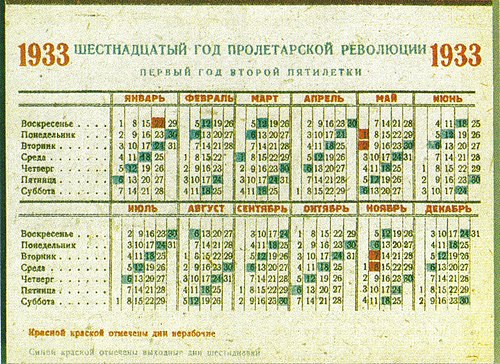Weeknoun
Any period of seven consecutive days.
Weeknoun
A period of seven days beginning with Sunday or Monday.
Weeknoun
A period of five days beginning with Monday.
Weeknoun
A subdivision of the month into longer periods of work days punctuated by shorter weekend periods of days for markets, rest, or religious observation such as a sabbath.
Weeknoun
Seven days after (sometimes before) a specified date.
Weeknoun
A period of seven days, usually that reckoned from one Sabbath or Sunday to the next.
Weeknoun
any period of seven consecutive days;
Weeknoun
a period of seven consecutive days starting on Sunday
Weeknoun
hours or days of work in a calendar week;
Week
A week is a time unit equal to seven days. It is the standard time period used for cycles of rest days in most parts of the world, mostly alongside—although not strictly part of—the Gregorian calendar.
Weakadjective
Lacking in force (usually strength) or ability.
Weakadjective
Unable to sustain a great weight, pressure, or strain.
Weakadjective
Unable to withstand temptation, urgency, persuasion, etc.; easily impressed, moved, or overcome; accessible; vulnerable.
Weakadjective
Dilute, lacking in taste or potency.
Weakadjective
(grammar) Displaying a particular kind of inflection, including:
Weakadjective
Regular in inflection, lacking vowel changes and having a past tense with -d- or -t-.
Weakadjective
Showing less distinct grammatical endings.
Weakadjective
Definite in meaning, often used with a definite article or similar word.
Weakadjective
(chemistry) That does not ionize completely into anions and cations in a solution.
Weakadjective
(physics) One of the four fundamental forces associated with nuclear decay.
Weakadjective
(slang) Bad or uncool.
Weakadjective
Having a narrow range of logical consequences; narrowly applicable. (Often contrasted with a strong statement which implies it.)
Weakadjective
Resulting from, or indicating, lack of judgment, discernment, or firmness; unwise; hence, foolish.
Weakadjective
Not having power to convince; not supported by force of reason or truth; unsustained.
Weakadjective
Lacking in vigour or expression.
Weakadjective
Not prevalent or effective, or not felt to be prevalent; not potent; feeble.
Weakadjective
(stock exchange) Tending towards lower prices.
Weakadjective
(photography) Lacking contrast.
Weakadjective
Wanting physical strength.
Weakadjective
Deficient in strength of body; feeble; infirm; sickly; debilitated; enfeebled; exhausted.
Weakadjective
Not possessing or manifesting intellectual, logical, moral, or political strength, vigor, etc.
Weakadjective
Not able to sustain a great weight, pressure, or strain; as, a weak timber; a weak rope.
Weakadjective
Feeble of mind; wanting discernment; lacking vigor; spiritless; as, a weak king or magistrate.
Weakadjective
Pertaining to, or designating, a verb which forms its preterit (imperfect) and past participle by adding to the present the suffix -ed, -d, or the variant form -t; as in the verbs abash, abashed; abate, abated; deny, denied; feel, felt. See Strong, 19 (a).
Weakadjective
Not firmly united or adhesive; easily broken or separated into pieces; not compact; as, a weak ship.
Weakadjective
Resulting from, or indicating, lack of judgment, discernment, or firmness; unwise; hence, foolish.
Weakadjective
Tending toward a lower price or lower prices; as, wheat is weak; a weak market.
Weakadjective
Not stiff; pliant; frail; soft; as, the weak stalk of a plant.
Weakadjective
Not having full confidence or conviction; not decided or confirmed; vacillating; wavering.
Weakadjective
Lacking in good cards; deficient as to number or strength; as, a hand weak in trumps.
Weakadjective
Not able to resist external force or onset; easily subdued or overcome; as, a weak barrier; as, a weak fortress.
Weakadjective
Not able to withstand temptation, urgency, persuasion, etc.; easily impressed, moved, or overcome; accessible; vulnerable; as, weak resolutions; weak virtue.
Weakadjective
Lacking contrast; as, a weak negative.
Weakadjective
Lacking force of utterance or sound; not sonorous; low; small; feeble; faint.
Weakadjective
Wanting in power to influence or bind; as, weak ties; a weak sense of honor of duty.
Weakadjective
Not thoroughly or abundantly impregnated with the usual or required ingredients, or with stimulating and nourishing substances; of less than the usual strength; as, weak tea, broth, or liquor; a weak decoction or solution; a weak dose of medicine.
Weakadjective
Not having power to convince; not supported by force of reason or truth; unsustained; as, a weak argument or case.
Weakadjective
Lacking ability for an appropriate function or office; as, weak eyes; a weak stomach; a weak magistrate; a weak regiment, or army.
Weakadjective
Wanting in point or vigor of expression; as, a weak sentence; a weak style.
Weakadjective
Not prevalent or effective, or not felt to be prevalent; not potent; feeble.
Weakadjective
Lacking in elements of political strength; not wielding or having authority or energy; deficient in the resources that are essential to a ruler or nation; as, a weak monarch; a weak government or state.
Weakadjective
Tending towards lower prices; as, a weak market.
Weakverb
To make or become weak; to weaken.
Weakadjective
having little physical or spiritual strength;
Weakadjective
overly diluted; thin and insipid;
Weakadjective
lacking power
Weakadjective
used of vowels or syllables; pronounced with little or no stress;
Weakadjective
having the attributes of man as opposed to e.g. divine beings;
Weakadjective
lacking force; feeble;
Weakadjective
lacking physical strength or vitality;
Weakadjective
used of verbs having standard (or regular) inflection
Weakadjective
lacking physical strength or vigor
Weakadjective
characterized by excessive softness or self-indulgence;
Weakadjective
lacking the power to perform physically demanding tasks; having little physical strength or energy
Weakadjective
lacking power or influence
Weakadjective
(of a team or military force) containing too few members or members of insufficient quality
Weakadjective
(of a faculty or part of the body) not able to fulfil its functions properly
Weakadjective
of a low standard; performing or performed badly
Weakadjective
not convincing or logically forceful
Weakadjective
exerting only a small force
Weakadjective
liable to break or give way under pressure; easily damaged
Weakadjective
lacking the force of character to hold to one's own decisions, beliefs, or principles; irresolute
Weakadjective
(of a belief) not held with conviction or intensity
Weakadjective
(of prices or a market) having a downward tendency.
Weakadjective
lacking intensity or brightness
Weakadjective
(of a liquid or solution) heavily diluted
Weakadjective
displaying or characterized by a lack of enthusiasm or energy
Weakadjective
(of features) not striking or strongly marked
Weakadjective
(of a syllable) unstressed.
Weakadjective
denoting a class of verbs in Germanic languages that form the past tense and past participle by addition of a suffix (in English, typically -ed).
Weakadjective
relating to or denoting the weakest of the known kinds of force between particles, which acts only at distances less than about 10⁻¹⁵ cm, is very much weaker than the electromagnetic and the strong interactions, and conserves neither strangeness, parity, nor isospin.






